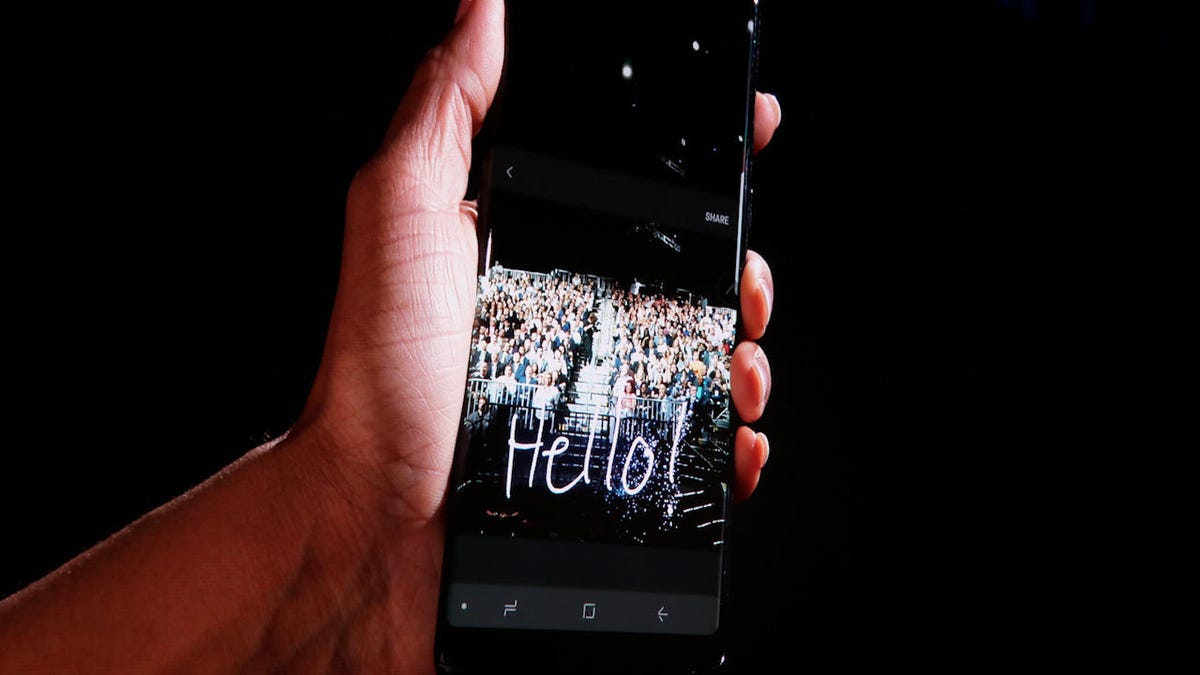Future Galaxy phones could fetch passwords with your palm
A Samsung patent application described a very different method of biometric identification.

The jury is still out on whether palm reading can predict your future, but it may help you remember lost passwords.
The password (ABHL) is shown hiding in the lines of a persons hand.
A recently spotted Samsung patent application (PDF) proposes the use of palm scanning as a method of identification on Samsung phones. The example given in the patent shows a person taking a picture of a hand to retrieve their forgotten password. But instead of the password just popping up on the screen, the phone hides the letters in the distinct patterns in your hand. The incomplete characters should then give the user enough of a hint to guess the password without making the answer too obvious.
If this palm-scanning method ever makes its way onto future Galaxy phones, it would join a long list of biometric identification techniques. Current Samsung phones like the Galaxy S8 and Note 8 already use fingerprint scanning, iris scanning and facial recognition on top of PIN and pattern-based passwords. Even though the palm-scanning patent would use the instance of a forgotten password there's always the possibility it could be adopted for other purposes, like unlocking the phone or authenticating Samsung Pay.
The process uses the rear camera to identify distinct patterns in your hand.
Samsung's chief rival, Apple, introduced facial recognition as the main form of authentication on the iPhone X. In order to do so, Apple designed a entire camera system that uses 3D sensors, infrared cameras and a dot projector to make the method -- called Face ID -- even more secure. If Samsung is to introduce palm scanning as a new method of authentication, we don't know if it'll use current Samsung tech or commission brand-new hardware. This could make a big difference in making the process more secure.
In bringing facial recognition to the iPhone X, Apple also took away fingerprint scanning -- its main method of identification for years. So this brings up two schools of thought. Samsung's approach is to explore as many methods of authentication as possible to give you more choice, versus Apple's focus on one method to make it as secure as possible. Which would you rather have for Samsung's next phone?
Samsung did not respond to a request for comment.
[Via SamMobile]

